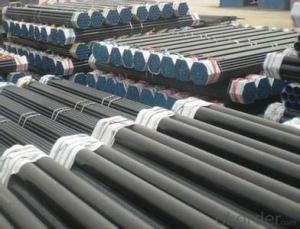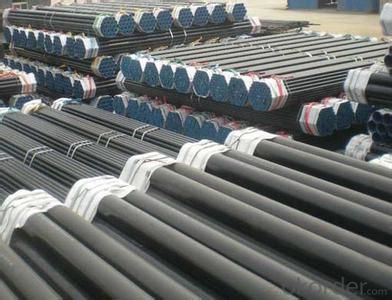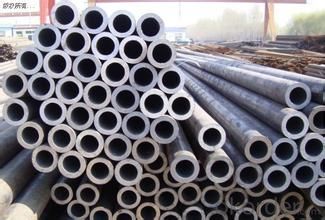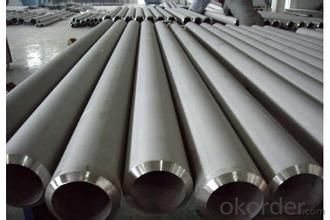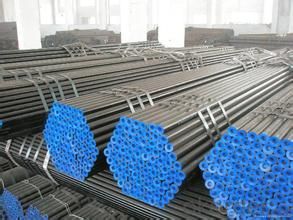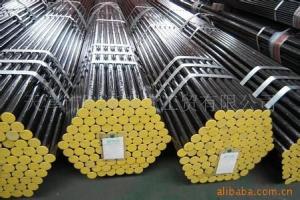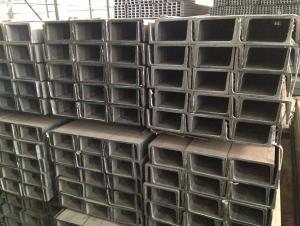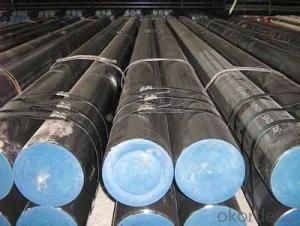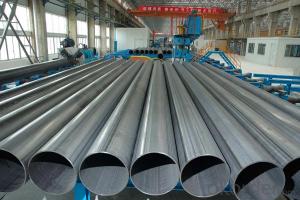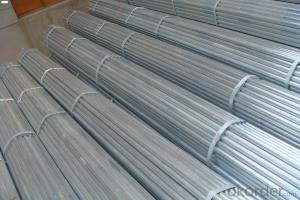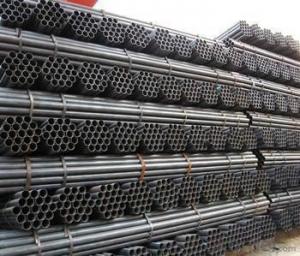Steel Pipe with High Quality and Best Price Q345 Q235
- Loading Port:
- China main port
- Payment Terms:
- TT OR LC
- Min Order Qty:
- 30 m.t.
- Supply Capability:
- 9000 m.t./month
OKorder Service Pledge
OKorder Financial Service
You Might Also Like
Product Description:
1、Structure of Steel Pipe with High Quality and Best Price Q345 Q235
Seamless steel pipe has a hollow section, a large number of pipes used for conveying fluid, such as oil, natural gas, gas, water and some solid materials, etc.. Compared to such as steel pipe and solid bar of steel, in flexural torsional strength are the same, the weight is light, is a kind of economic section steel, widely used in the manufacture of structural parts and mechanical parts, such as drill pipe, automobile transmission shaft, self frame as well as the construction of the steel scaffolding steel pipe manufacturing annular parts, can improve the material utilization rate, simplify the manufacturing process, material saving and working hours, has been widely used in steel pipe manufacturing.
2、Main Features of Steel Pipe with High Quality and Best Price Q345 Q235
·Highly demanded
·Durable
·Reliable
·resist corrosion
·
3、Steel Pipe with High Quality and Best Price Q345 Q235 Images:
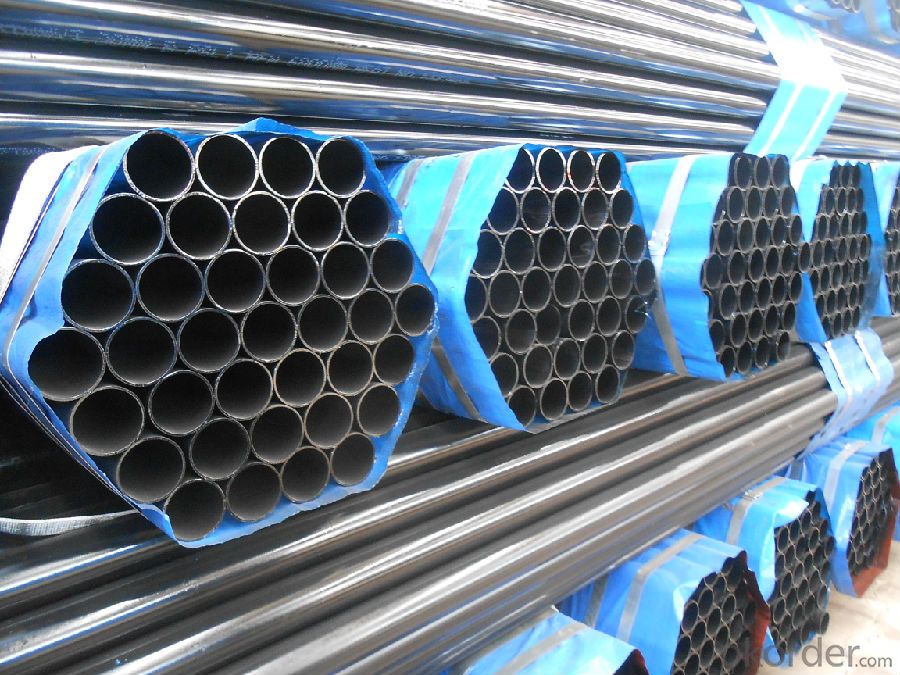
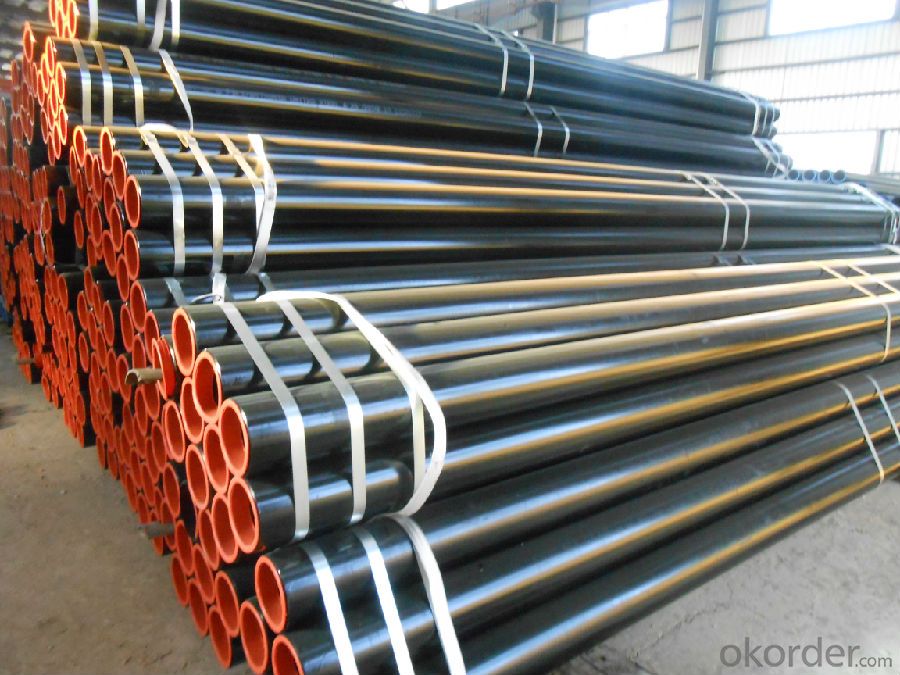
4、Steel Pipe with High Quality and Best Price Q345 Q235Specification:
Standard JIS, DIN, ASTM
JIS G3445-2006, JIS G3444-2006, JIS G3446-2004, DIN EN 10216-1-2004, DIN EN 10217-1-2005, DIN EN 10305, ASTM A106-2006, ASTM A53-2007, ASTM A789-2001, ASTM A1020-2002, ASTM A179-1990, ASTM A199Grade Cr-Mo alloy, Mo, ST35-ST52, Q195-Q345, CrNi alloy
15CrMo, 10CrMo910, 30CrMo, 15Mo3, 16Mo, St37, St52, St42, St45, Q235, Q345, Q195, Q215, Cr17Ni8, 1Cr13Mn9Ni1NThickness 2 - 50 mm Section Shape Round Outer Diameter 10 - 900 mm Secondary Or Not Non-secondary Application Structure Pipe Technique EFW Certification API Surface Treatment Paint Special Pipe API Pipe Alloy Or Not Non-alloy
Specifications
1.W.T from 2mm to 70mm
2.OD from 10 to 1200mm
3.product by our own factory
4.on time dilivery
5、FAQ of Steel Pipe with High Quality and Best Price Q345 Q235:
①How is the quality of your products?
Our products are manufactured strictly according to national and internaional standard, and we take a test
on every pipe before delivered out. If you want see our quality certifications and all kinds of testing report, please just ask us for it.
Guaranteed: If products’ quality don’t accord to discription as we give or the promise before you place order, we promise 100% refund.
②How about price?
Yes, we are factory and be able to give you lowest price below market one, and we have a policy that “ for saving time and absolutely honest business attitude, we quote as lowest as possible for any customer, and discount can be given according to quantity”,if you like bargain and factory price is not low enough as you think, just don’t waste your time.Please trust the quotation we would give you, it is professional one.
③Why should you chose us?
Chose happens because of quality, then price, We can give you both.Additionally, we can also offer professional products inquiry, products knowledge train(for agents), smooth goods delivery, exellent customer solution proposals.Our service formula: good quality+good price+good service=customer’s trust
SGS test is available, customer inspection before shipping is welcome, third party inspection is no problem.
Any question, pls feel free to contact us !
- Q: What is the difference between steel pipes and copper-nickel pipes?
- The main difference between steel pipes and copper-nickel pipes lies in their composition and characteristics. Steel pipes are primarily made of iron and carbon, whereas copper-nickel pipes are made of a combination of copper and nickel with trace amounts of other elements. Steel pipes are known for their strength and durability, making them suitable for a wide range of applications, particularly in industries where high pressure and temperature conditions are present. Steel pipes are also relatively cost-effective and have good corrosion resistance, especially when coated or galvanized. On the other hand, copper-nickel pipes are highly resistant to corrosion and have excellent heat transfer properties. They are commonly used in marine environments due to their resistance to saltwater corrosion. Copper-nickel pipes also exhibit antimicrobial properties, making them suitable for applications in healthcare and food processing industries. However, copper-nickel pipes are generally more expensive than steel pipes. In summary, steel pipes are valued for their strength and affordability, while copper-nickel pipes offer superior corrosion resistance and heat transfer properties, but at a higher cost. The choice between the two depends on the specific requirements of the application.
- Q: How to make the magnetic steel, can be like a magnet?
- Magnetization. Winding the insulated wire on the object, passing in the direct current, and taking it down after a period of time.
- Q: How are steel pipes used in hydroelectric power plants?
- Steel pipes are used in hydroelectric power plants to transport water from the reservoir to the turbines. These pipes are designed to withstand high pressure and are often used for penstocks, which are large vertical pipes that deliver water to the turbines at a controlled rate. The durability and strength of steel pipes make them ideal for withstanding the force of the flowing water and ensuring a reliable water supply for power generation.
- Q: How are steel pipes used in the manufacturing of boilers and heat exchangers?
- Steel pipes are an essential component in the manufacturing of boilers and heat exchangers due to their unique properties and capabilities. These pipes are specifically designed to withstand high temperatures, pressures, and corrosive environments, making them ideal for these applications. In the manufacturing process of boilers, steel pipes are used to construct the main body or shell of the boiler. This shell contains the water or steam that is heated to generate heat or produce steam for various industrial processes. The steel pipes used in boilers are typically seamless or welded, with precise dimensions and high strength to ensure structural integrity and prevent leaks. Heat exchangers, on the other hand, are devices used to transfer heat between two fluids, often with different temperatures. Steel pipes are employed in heat exchangers as the primary medium for transferring heat. The pipes are usually arranged in a pattern, allowing the hot fluid to pass through one set of pipes while the cold fluid passes through another set. This arrangement enables efficient heat transfer between the two fluids. The use of steel pipes in boilers and heat exchangers offers several advantages. Firstly, steel pipes have excellent thermal conductivity, allowing for efficient heat transfer between the fluid and the surrounding environment. Secondly, steel pipes have high tensile strength and can withstand high pressure, ensuring the safety and reliability of the equipment. Thirdly, steel pipes are resistant to corrosion, which is crucial in environments where the fluids being processed are corrosive or contain impurities. Moreover, steel pipes can be easily fabricated and customized to meet the specific requirements of boilers and heat exchangers. They can be manufactured in various sizes, lengths, and thicknesses to accommodate different applications. Additionally, steel pipes can be coated or lined with materials such as ceramic or epoxy to provide further protection against corrosion or abrasion. In summary, steel pipes play a vital role in the manufacturing of boilers and heat exchangers. Their unique properties, including high strength, thermal conductivity, and corrosion resistance, make them the ideal choice for these applications. The use of steel pipes ensures the efficient operation, safety, and longevity of boilers and heat exchangers in various industrial processes.
- Q: How are steel pipes used in the manufacturing of sewage treatment plants?
- Steel pipes are commonly used in the manufacturing of sewage treatment plants primarily for their durability, strength, and resistance to corrosion. These pipes are utilized for various purposes within the treatment process, including transporting sewage and wastewater between different treatment units, carrying chemicals for disinfection or neutralization, and providing structural support for the plant's infrastructure.
- Q: How do you calculate the stress in a steel pipe?
- When calculating the stress in a steel pipe, it is necessary to take into account the steel's material properties and the external forces acting upon the pipe. The stress in the pipe is typically determined using the following equation: Stress = Force / Area Initially, the force acting on the pipe must be established. This force may stem from external loads such as pressure, weight, or mechanical forces. The force can be calculated by multiplying the pressure or weight by the surface area it acts upon. For instance, if the pipe is subjected to internal pressure, the force can be determined using the equation: Force = Pressure x Area Subsequently, the cross-sectional area of the pipe needs to be determined. The cross-sectional area of a circular pipe can be calculated using the formula: Area = π x (Diameter / 2)^2 Once the force and area have been determined, the stress can be calculated by dividing the force by the area. This calculation will yield the stress value in units like pounds per square inch (psi) or newtons per square meter (Pa). It is important to bear in mind that the stress calculation assumes that the pipe is in a state of equilibrium and that the material properties of the steel are known. The material properties, such as yield strength and ultimate tensile strength, are utilized to ensure that the calculated stress does not exceed the steel's maximum capacity.
- Q: What are the applications of galvanized steel pipes?
- Galvanized steel pipes have a wide range of applications in various industries. They are commonly used in plumbing systems to deliver water and gas due to their excellent corrosion resistance. Additionally, they are used in the construction industry for structural purposes, such as scaffolding, fences, and handrails. Galvanized steel pipes are also utilized in the agricultural sector for irrigation systems and as posts for supporting crops. Furthermore, they find usage in oil and gas pipelines, HVAC systems, and automotive manufacturing. Overall, the applications of galvanized steel pipes are diverse, making them an essential material in multiple sectors.
- Q: How do you calculate the pipe flow velocity for steel pipes?
- To calculate the pipe flow velocity for steel pipes, you can use the formula: Velocity = (Flow rate / (π * (Diameter/2)^2)). This equation takes into account the flow rate of the fluid through the pipe and the diameter of the steel pipe.
- Q: How are steel pipes classified based on their diameter?
- Steel pipes are classified based on their diameter by categorizing them into different size ranges, such as small diameter pipes, medium diameter pipes, and large diameter pipes.
- Q: What is the impact resistance of steel pipes?
- Steel pipes have high impact resistance, meaning they can withstand significant external forces without fracturing or breaking. This makes them highly durable and suitable for various applications, especially in industries where they are subjected to heavy loads or potential impacts.
Send your message to us
Steel Pipe with High Quality and Best Price Q345 Q235
- Loading Port:
- China main port
- Payment Terms:
- TT OR LC
- Min Order Qty:
- 30 m.t.
- Supply Capability:
- 9000 m.t./month
OKorder Service Pledge
OKorder Financial Service
Similar products
Hot products
Hot Searches
Related keywords
